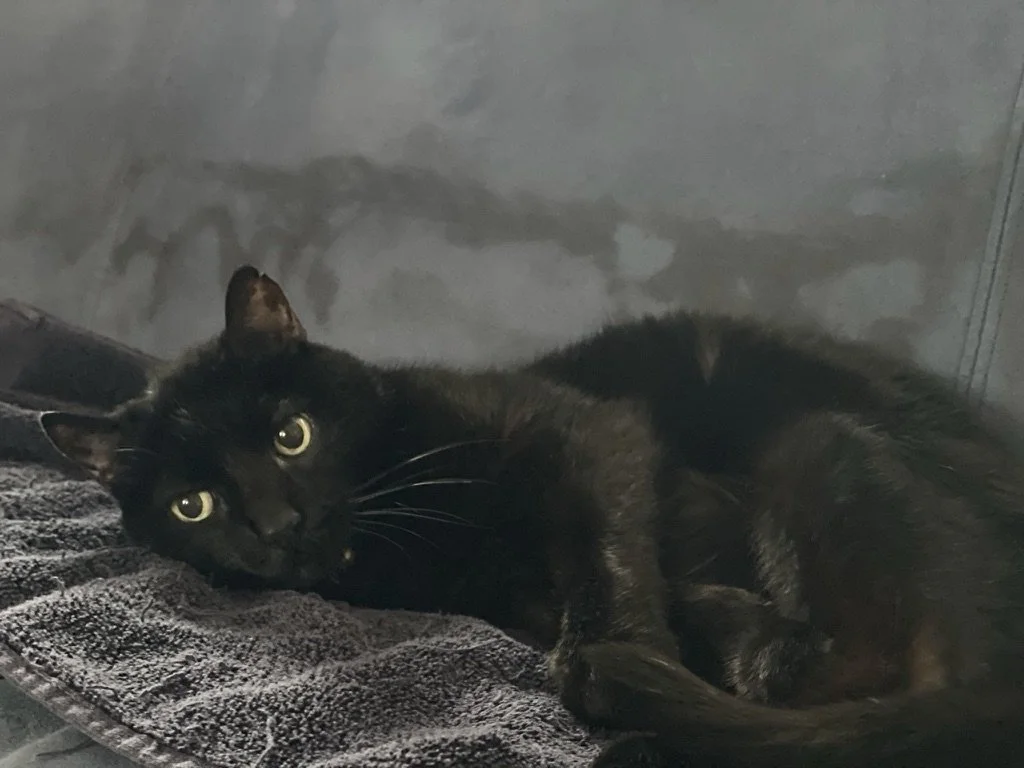Privacy as Policy, Not Place
No matter how sure-footed you are, in all likelihood, you have tripped or stumbled or even fallen while in public. If you are like most people, the first thing you probably did after catching yourself was look around to see if anyone noticed. Which, of course, they did.
The next thing you probably did was stare intently at the spot where you tripped, maybe even scuffing it with your toe to make clear to interested onlookers that you are not a klutz but, rather, were tripped up by some flaw in the surface that, probably, almost certainly, the city was surely negligent in not fixing. With cheeks burning, and a final glance at the offending but likely imaginary hazard, you hurried on your way.
(All of this presupposes you are not a cat, creatures who manage to take falls worthy of America’s Funniest Home Videos yet somehow appear nonchalant about the whole thing. (Although I believe they are secretly plotting some kind of revenge—if you want proof that cats are not like the rest of us, I encourage you to read Dog Journal/Cat Journal. But I digress.)
The pitfalls of a public pratfall seem so innate that they have given rise to a whole lineage of snide jokes that a friend might bust out without thought: “Have a nice trip? See you next fall!” or “Ten out of ten for the dismount!” or “Could you reenact that in slow motion?”
Our instinctive need to look at another person in an embarrassing situation seems not that dissimilar to a troop of chimpanzees shouting “ooh, ooh, ooh!” at some interesting disturbance. Most of us have learned to not actually point and exclaim, but when someone spills a drink or walks into a screen door or sits down but completely misses the chair, most of us find it impossible to not look and—crucially—not stare such that the embarrassed person knows they have been seen.
But there is an alternative. What if, assuming the person isn’t hurt or in need of assistance, we simply looked away? What if, in other words, we offered that person privacy?
Privacy, of course, derives from the word “private.” Like many old words derived from old English[1], “private” has many interesting meanings. It can mean “confidential” as in a “private conversation.” It can mean the lowest rank in the military. It can distinguish a private company from a public company or private property from public property. For our purposes, however, I want to focus on the most colloquial definition:
private (adj.)
1. Situated so as to avoid observation; secluded; not open or accessible to others.
a. Withdrawn from or shielded against public view or attention.
b. Located or occurring away from others; solitary or apart.
For most of us, when we think of “privacy,” we think of physical privacy, of being alone. And in many situations, this is completely apt. There’s a reason a privy is called a privy! But privacy doesn’t have to be a place. In many places in fact, physical privacy is impossible. After all, a Private in the army is rarely alone!
But you don’t have to enlist in the army or live on a sailboat to find yourself in situations where true solitude is out of reach. Prisoners sharing a cell on a crowded cell block, adjacent passengers on an airplane, a college dorm, a shared hospital room, an open-plan office… Ironically, in settings where physical privacy is impossible either due to space constraints or the presence of others—or both—one’s psychological need for privacy actually increases. In such situations, privacy cannot be afforded as a place, it can only be practiced as a deliberate policy by the other people sharing one’s space.
As astute readers of this newsletter know, we Harveys have (voluntarily, it must be noted) spent a lot of time in close quarters. There are only so many places to hide on a sailboat and basically none in a backpacking tent. (Vienna will chart out those spaces in more detail in the next installment of Leaving a Clean Wake.) Honing a keen instinct for when someone needed space—and learning how to give it—became a crucial part of keeping long ocean passages and through-hikes harmonious and pleasant for all concerned.
When someone trips or spills a drink, we can train ourselves to look away instead of staring. If someone’s jaw is clenched, or their eyes closed, or their back turned, we don’t always need to ask, “What’s wrong?” We can let them be. We can “give them space” even when physical space isn’t something we have to give. That kind of privacy isn’t architectural—it’s ethical. We grant it not by stepping away, but by holding back. And like many acts of restraint, the wake it leaves is a clean one. We all stumble from time to time, but we also all want our trips to be good ones.
Bon voyage!
[1] Technically, “private” comes into Middle English via Old French privé but, again, I digress.




